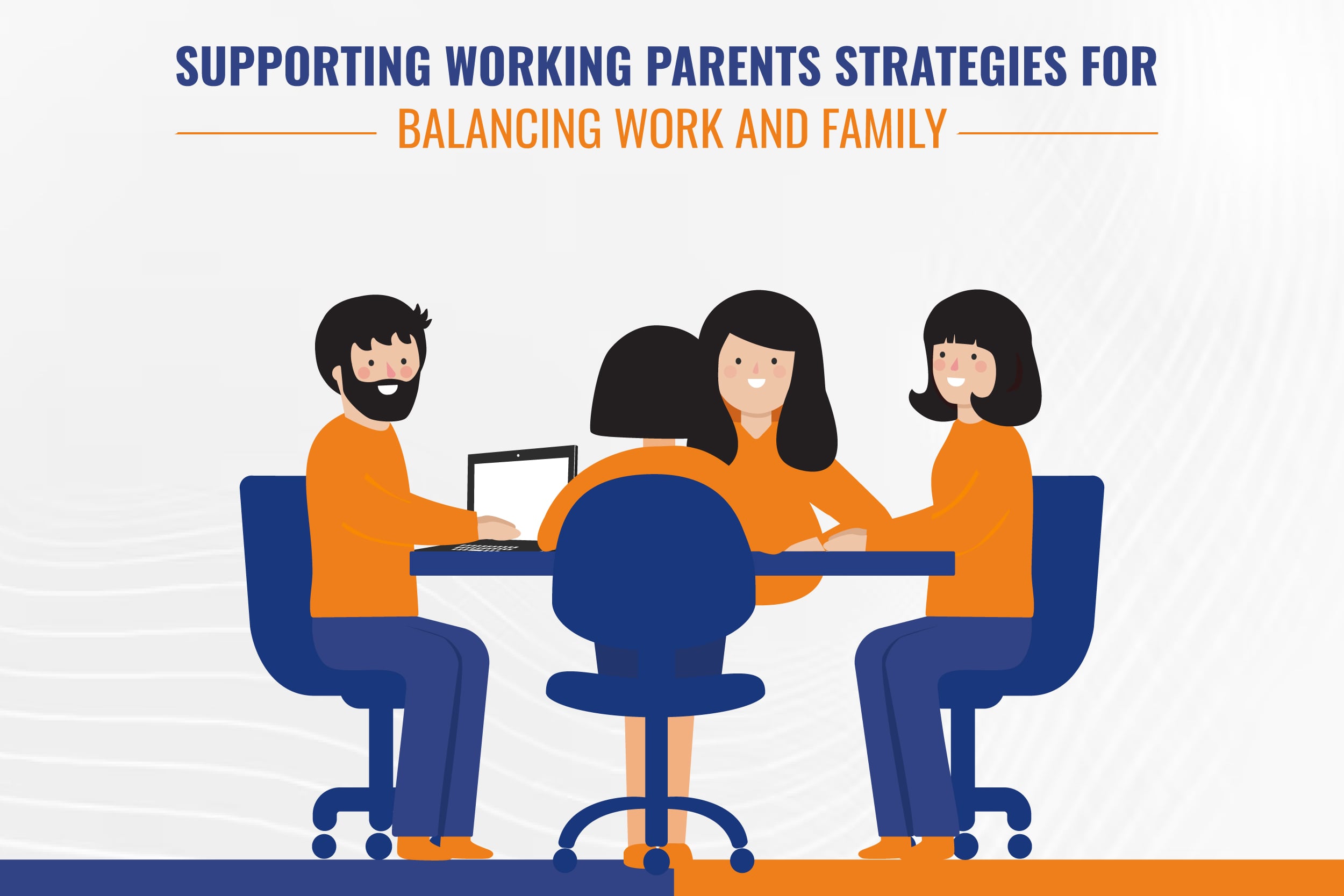
Supporting Working Parents: Strategies for Balancing Work and Family
In today's fast-paced world, achieving a harmonious balance between work and family life can be a significant challenge, particularly for working parents. Juggling the demands of a career with the responsibilities of parenthood can often feel like navigating a complex maze, where finding the right path requires careful planning, flexibility, and support. As organizations strive to create inclusive and supportive work environments, it is essential for employers to recognize the unique needs of working parents and implement strategies to help them thrive both personally and professionally.
In this article, we will explore various strategies that organizations can adopt to support working parents in balancing their work and family responsibilities effectively. From flexible work arrangements to parental leave policies and corporate leadership training initiatives, there are numerous ways employers can empower their employees to succeed in both their professional and personal lives.
1. Flexible Work Arrangements
One of the most effective ways to support working parents is by offering flexible work arrangements. Flexible scheduling, remote work options, and compressed workweeks can provide parents with the flexibility they need to manage their childcare responsibilities while still meeting their work obligations. By allowing employees to adjust their work hours or location as needed, employers demonstrate their commitment to promoting work-life balance and accommodating the diverse needs of their workforce.
Moreover, advances in technology have made remote work more accessible than ever before, enabling employees to perform their jobs from virtually anywhere. Remote work not only offers parents the flexibility to be present for their children but also eliminates the stress and time associated with commuting, allowing them to allocate more time to their families.
2. Supportive Parental Leave Policies
Another critical aspect of supporting working parents is the implementation of supportive parental leave policies. Paid parental leave allows employees to take time off to bond with their newborn or adopted child without having to worry about financial instability. Offering generous parental leave benefits not only promotes employee well-being but also helps organizations attract and retain top talent.
In addition to maternity and paternity leave, organizations can also consider implementing policies such as flexible return-to-work programs and phased return-to-work arrangements. These initiatives ease the transition back to work for new parents, enabling them to gradually reintegrate into their roles while adjusting to their new family dynamics.
3. Childcare Support
Providing childcare support is another valuable strategy for supporting working parents. Employers can offer various childcare benefits, such as on-site childcare facilities, subsidies for childcare expenses, or referrals to reputable childcare providers. By alleviating the financial burden of childcare and facilitating access to quality care, organizations demonstrate their commitment to supporting the holistic well-being of their employees and their families.
Furthermore, organizations can explore partnerships with local childcare providers or community organizations to offer discounted childcare services or educational programs for employees' children. Investing in childcare support not only benefits working parents but also contributes to employee satisfaction, productivity, and retention.
4. Employee Assistance Programs
Employee assistance programs (EAPs) are valuable resources that provide employees and their families with access to counseling, mental health support, and other wellness services. EAPs can be particularly beneficial for working parents who may experience stress, anxiety, or burnout as they navigate the challenges of balancing work and family life.
By offering confidential and accessible support services like leadership training courses, employers demonstrate their commitment to prioritizing employee well-being and fostering a supportive work environment. EAPs can help working parents manage stress, improve work-life balance, and enhance their overall resilience, ultimately leading to greater job satisfaction and productivity.
5. Leadership Training and Development
Effective leadership plays a crucial role in creating a supportive and inclusive work environment for working parents. Leadership training courses that focus on empathy, communication, and flexibility can help managers and supervisors better understand the needs of working parents and provide them with the support and resources they need to succeed.
Corporate leadership training programs can equip leaders with the skills and knowledge necessary to foster a culture of work-life balance, promote flexible work arrangements, and accommodate the diverse needs of their team members. By investing in leadership training for employees, organizations empower their leaders to lead by example and create a culture where employees feel valued, respected, and supported in both their professional and personal lives.
Final Thoughts
Supporting working parents requires a multifaceted approach that addresses the unique challenges they face in balancing their work and family responsibilities. By implementing strategies such as flexible work arrangements, supportive parental leave policies, childcare support, employee assistance programs, and corporate leadership training initiatives, organizations can create a supportive work environment where working parents can thrive both personally and professionally. By prioritizing the well-being of their employees and their families, organizations not only enhance employee satisfaction and productivity but also position themselves as employers of choice in today's competitive labor market.
As organizations strive to create inclusive and supportive work environments, it is essential for employers to recognize the unique needs of working parents and implement strategies to help them thrive both personally and professionally. From flexible work arrangements to parental leave policies and leadership training courses, there are numerous ways employers can empower their employees to succeed in both their professional and personal lives.
